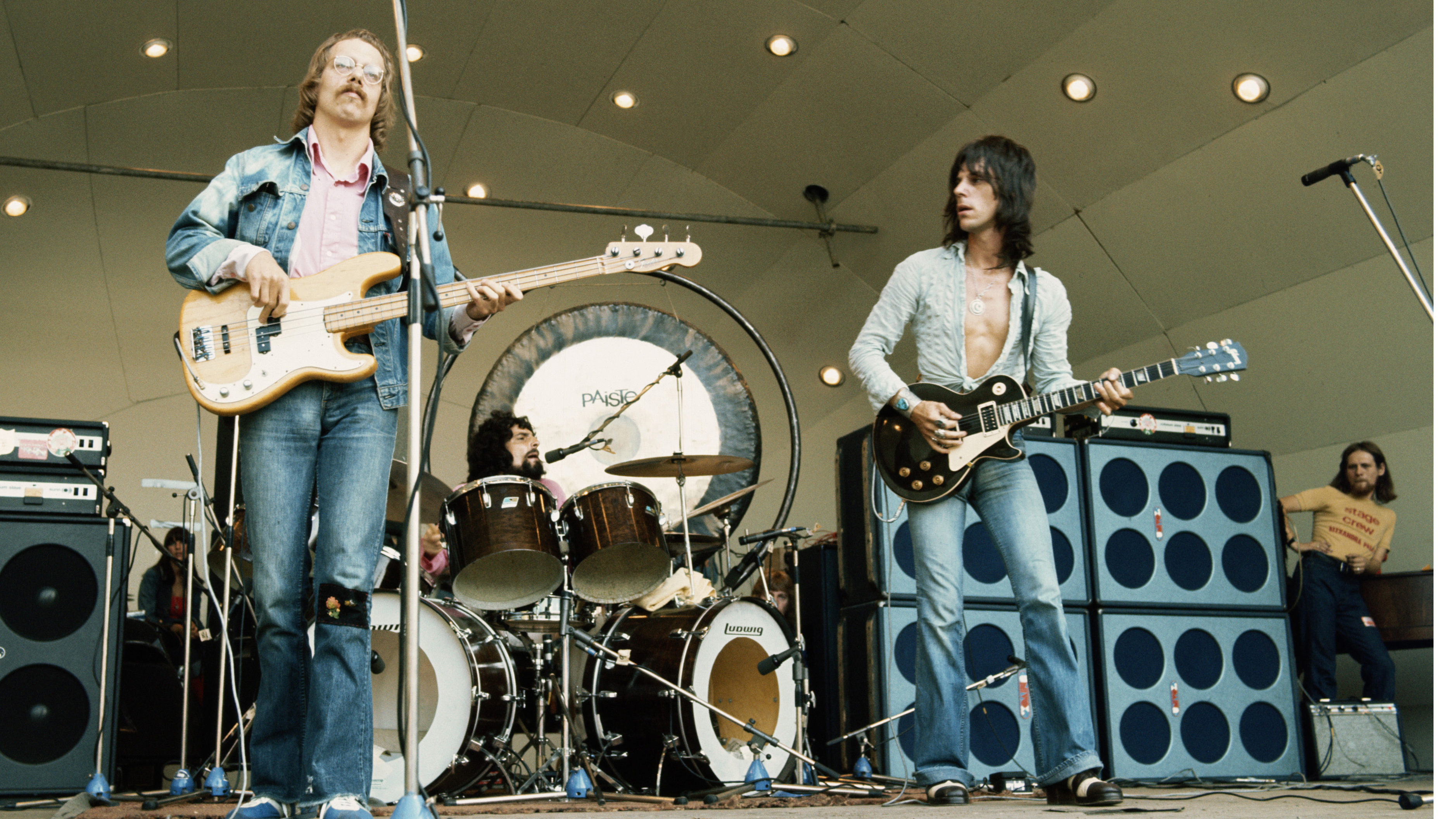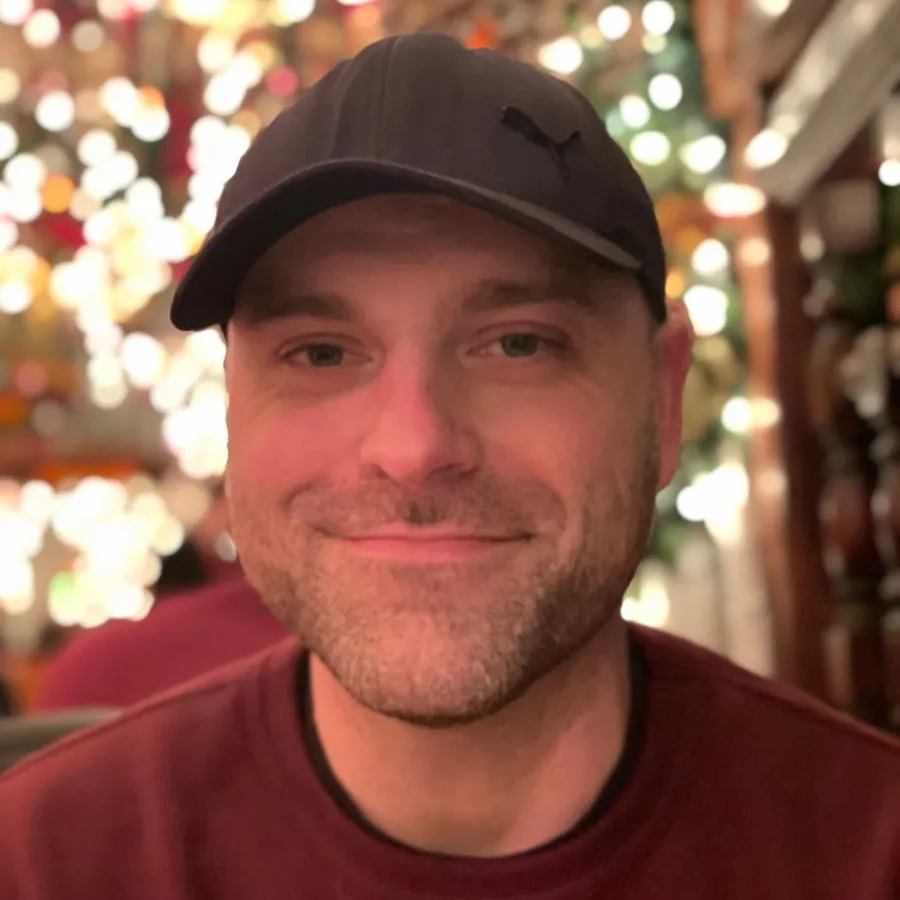“Tim wasn’t feeling good, and then Jeff said something derogatory, and Tim just punched him in the face!”: The dramatic story of Jeff Beck’s explosive ’70s supergroup and the song that Stevie Wonder gifted to them and then reclaimed
An eye-witness account from drummer Carmine Appice

Want all the hottest music and gear news, reviews, deals, features and more, direct to your inbox? Sign up here.
You are now subscribed
Your newsletter sign-up was successful
In 1972, legendary British guitarist Jeff Beck formed one of rock’s supergroups with two American musicians who had played together in Vanilla Fudge – bassist/vocalist Tim Bogert and drummer Carmine Appice.
This formidable power trio – named simply Beck, Bogert & Appice – made just one studio album before imploding after a fistfight between Beck and Bogert.
For Carmine Appice, the demise of this dynamic group was a sad case of what might have been – but as he now tells MusicRadar, it was an unforgettable experience.
Appice first met Beck in London in the late ’60s.
“I met him during my first trip to England,” he says. “He was just coming out of the Yardbirds and didn’t know what he was going to do. We talked and became friends, and I think we might have jammed at the Speakeasy club in London.”
They connected again when the guitarist was leading The Jeff Beck Group with Rod Stewart on vocals and Ronnie Wood on bass.

“Vanilla Fudge was doing a Coke commercial,” Appice says. “We had the same attorneys as the Jeff Beck Group and Rod Stewart, and when Rod and Ronnie came down to watch us record, our guitar player Vinnie Martell was sick, and our manager said, ‘What about Jeff?’
Want all the hottest music and gear news, reviews, deals, features and more, direct to your inbox? Sign up here.
"So we paid Jeff Beck $300 for the session for the Coke commercial. And at that point, Tim [Bogert] and me both said, ‘Wow, we’d love to play with Jeff.’ Things were changing, and music was all about guitars, and we really wanted to play with him.”
They also fancied getting Rod Stewart involved.
Appice recalls: “We said, ‘What if we got Jeff Beck and Rod Stewart?’ But Rod didn’t want to work with Jeff [again]. So finally, in 1972, we got together with just the three of us.”
Appice never knew why there was a problem between Beck and Stewart.
“Business-wise, something was going on,” he says. “Maybe he [Stewart] felt like he got ripped off. But I don’t know because I never talked to Rod about it. I would just always say, ‘Hey, it’s too bad that we never got together…’ But since 1968 and until 1983, they were enemies.”
Appice claims he eventually acted as peacemaker for Beck and Stewart when he was part of the latter’s backing band.
“I actually helped them get together and work it out in 1983,” he says. “We were in a hotel in Australia, and so was Jeff. I went up and knocked on his door, and we ended up partying a little bit.
“I had a show with Rod the next day, and I said to Jeff, ‘Why don’t you come to the show?’ Jeff said, ‘I know Rod won’t want me there.’ I said, ‘No, come on, man. It’s been fucking years. You guys are adults.’
“I said, ‘Come to the show. It’ll be cool. Don’t worry about it. I’ll be there with you.’ So the next day, we’re in the dressing room, and the roadie says, ‘Jeff Beck is here…’ I said, ‘Have him come in.’
“I walked Jeff in, and when Rod and Jeff looked at each other it was almost like time stood still. Everybody was quiet, and I said, ‘Come on, say hi to Rod…’ Jeff goes over and said, ‘Hi, mate’, and they gave each other a hug.”
Beck, Bogert & Appice’s self-titled album was released in 1973 and featured a version of the Stevie Wonder song Superstition. A year earlier, Beck had played on Wonder’s album Talking Book.
Appice says of Superstition: “Stevie wrote that song for Jeff for playing on his album. And we had heard the demo that Stevie did and we said, ‘Well, we’re gonna change that…’
“We changed it to the version on the BBA album, and while we were doing that, Motown heard Stevie’s demo and said, ‘This is a number one record!’ So they released it – and by the time our version came out, Stevie’s version was number one already.
“It looked like we did a cover, but we didn’t. That song was actually written for Jeff.”
The Beck, Bogert & Appice album was in part recorded at the legendary Chess Studios in Chicago.
“That was Jeff’s idea to go there,” Appice shrugs. “I couldn’t care less about Chess Studios! But we did get a killer drum sound there.
“We just did in the studio what we did live, and kept putting tracks together. It was cool, and we had a good time there.”
As for Beck’s reasons for splitting such a promising group, Appice has a straightforward answer:
“Probably because Tim punched him in the face!” he says. “It was always the same thing with Tim because Tim was not your usual bass player. Tim was always the lead bass player. Tim was right up the ass, you know?
“He would be right up your ass, so you didn’t just get a groove out of him. He would be totally amazing, like Billy Sheehan. So that’s what happened. And then one day Tim punched Jeff in the face.”
He explains: “ Tim was sick as a dog. He wasn’t feeling good. And then Jeff said something derogatory, and Tim just punched him in the face. And then we had to go on and play the second show at the London Rainbow, which came out on the recent box set.”
Andrew Daly is an iced-coffee-addicted, oddball Telecaster-playing, alfredo pasta-loving journalist from Long Island, NY, who, in addition to being a contributing writer for Guitar World, scribes for Rock Candy, Bass Player, Total Guitar, and Classic Rock History. Andrew has interviewed favorites like Ace Frehley, Johnny Marr, Vito Bratta, Bruce Kulick, Joe Perry, Brad Whitford, Rich Robinson, and Paul Stanley, while his all-time favorite (rhythm player), Keith Richards, continues to elude him.
You must confirm your public display name before commenting
Please logout and then login again, you will then be prompted to enter your display name.
